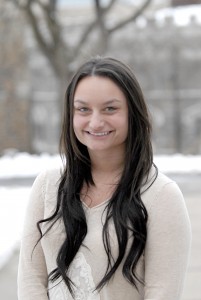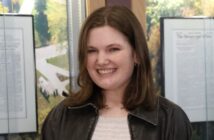Krystle Campbell, 29. Lu Lingzi, 23. Martin Richard, 8. Sean Collier, 27.
These are the names of the four people killed in the Boston Marathon bombings and subsequent shootings, which changed the the lives of their families, the 264 wounded runners and spectators, and thousands of individuals forever.
That day, April 15, 2013, became one of the days in our nation’s history that people will look back on and say, “I remember exactly where I was when I heard.”
I was in the car, driving through New York with my parents on the way home to Massachusetts after visiting the final two schools on my list of possible colleges I was interested in attending. I explored Twitter, hoping to find something that would help me choose which school I would call home for the next four years.
Seemingly out of nowhere, breaking news tweets flooded my feed. Two bombs had detonated near the Boylston Street finish line of the Boston Marathon. At first, I didn’t believe it was true. Boston was my city, the place I was on my way home to, and there was no way that two bombs had detonated at an event known to represent such strength, pride and resiliency.
I felt trapped in the car. I had so many friends in the city or friends with family members in the city. I called everyone I could to make sure they were OK. I was fortunate enough that no one I knew in the area had been wounded. However, the friends and family members of nearly 270 other people weren’t lucky enough to say the same.
When I got home, I watched with the rest of the country as law enforcement did an incredible job of finding the men responsible for the act of terrorism. It seemed like an episode of CSI, but I was watching my local news station as police chased the men through towns I’d recently driven through. It took all of five days to catch the two responsible, and while one suspect was killed in the chase, people had the peace of mind of knowing that at least one would be brought to justice.
But unlike an episode of CSI, the tragedy didn’t end once the bad guys were caught. We couldn’t just move on to the next episode and forget. This was a real life nightmare and it was, quite literally, hitting way too close to home. The city of Boston, the 23,000 who participated in the marathon, the innocent spectators and families whose lives were forever changed still sought out closure.
On Wednesday, exactly one week shy of the two-year anniversary of the fatal bombing, a jury found Dzhokhar Tsarnaev guilty of all 30 charges brought against him. The 30 guilty verdicts delivered to Tsarnaev and the sentencing stage of the trial to follow gave the city of Boston and all those impacted by the marathon bombing that first sense of closure they needed. It is no longer about the terrorist. From here on out, it is about the victims. Whether Tsarnaev is sentenced to life or death, the individuals whose lives he impacted can finally begin moving forward.
In a perfect world, we would use the conviction of this individual — who, though legally one of our own, held no allegiance to our nation — as a reminder to take care of the lives of those around us. We would take pride in our country and step back to look at the hate crimes and senseless acts of violence which litter it every day.
The Boston bombings were an extreme and tragic act of terrorism, but Americans are harming each other all the time. You can’t turn on the news without another report of police brutality, murders, rapes or other attacks. Even as Lehigh students, we aren’t strangers to Chief Shupp’s safety bulletins or the LU Greeks blog letting us know another organization is under investigation for allegations of hazing its members or accusations of racism or sexism toward members of the Lehigh community.
As I scrolled through my Twitter timeline after the delivery of the verdicts, I was brought to tears by the support and resiliency which poured out from the city of Boston and those impacted. I saw a community of people come together to stand strong in the wake of such tragedy, and I couldn’t help but hope that communities across the nation could follow in such resiliency. We will never eliminate crime altogether. That’s just unrealistic. But we can start small, in our communities, and make an effort to realize what happens when we come together and start treating each other better.
As a Massachusetts resident who will intern on Boylston Street this summer, I can only hope to look out onto the finish line every day and feel that the communities I’m a part of use the initial closure provided by the guilty verdicts as motivation to, like runners in a marathon, keep moving forward.






Comment policy
Comments posted to The Brown and White website are reviewed by a moderator before being approved. Incendiary speech or harassing language, including comments targeted at individuals, may be deemed unacceptable and not published. Spam and other soliciting will also be declined.
The Brown and White also reserves the right to not publish entirely anonymous comments.
3 Comments
Great piece Madison!
As someone who actually lives in Boston, was barely a block away when the bombing occurred, and who had a sister participating in this race, I am personally offended by your post. You weren’t there so no it wasn’t “literally hitting too close to home”. Hitting too close to home would be not leaving your dorm and being unable to eat for 24 hours for fear of being attacked and for not knowing what was going around in MY home. I sympathize with the friends and family who were at the event, but if you did not experience this horror yourself, you have no idea what fear truly is.
Life goes on and so we do. That awful act is like the marathon itself – it is hard but you keep yourself moving forward! I hope such a tragic to never happen again!